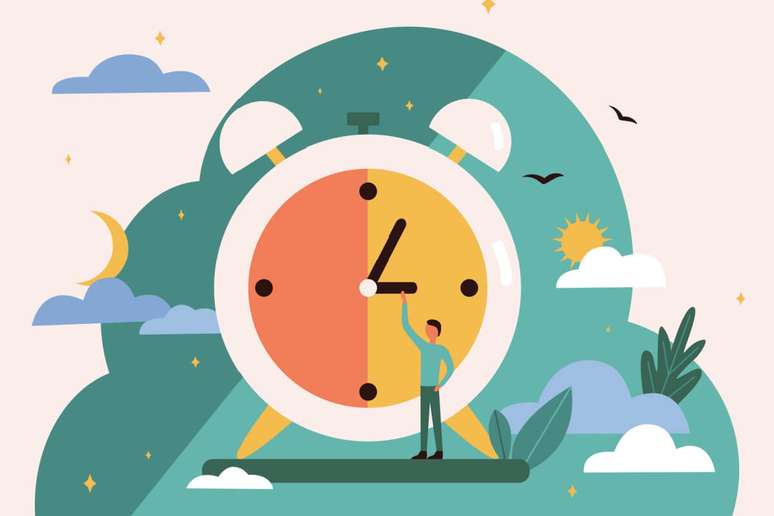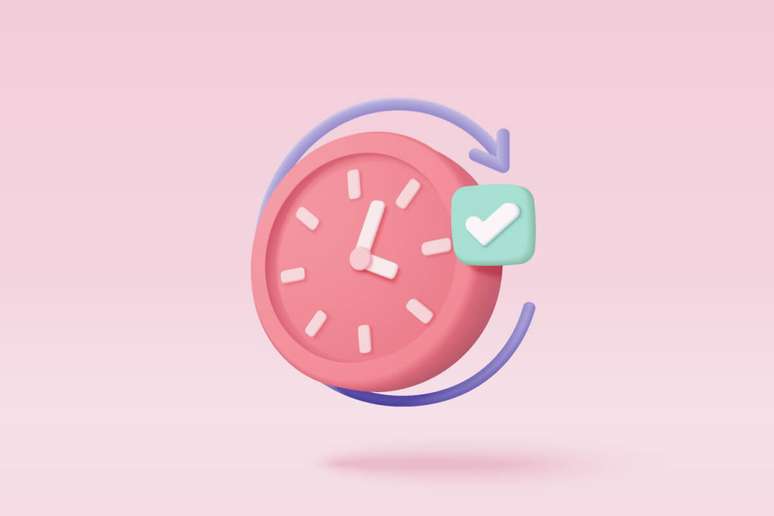Experts warn of the negative effects of putting off homework and share tips on how to avoid this habit
There are two common mistakes that make us procrastinate. First, leave the important tasks to do the less important ones. This slows our progress and creates pressure; second, thinking that a task will be quick, when, in reality, it will take longer. This feat makes us think we have more time than we actually do. In this scenario, recognizing these attitudes is the beginning of overcoming procrastination and being more productive.
html[data-range=”xlarge”] figure image img.img-4f26a7d18433c714485afb12d4750e324fkat2lj { width: 774px; height: 516px; }HTML[data-range=”large”] figure image img.img-4f26a7d18433c714485afb12d4750e324fkat2lj { width: 548px; height: 365px; }HTML[data-range=”small”] figure image img.img-4f26a7d18433c714485afb12d4750e324fkat2lj, html[data-range=”medium”] figure image img.img-4f26a7d18433c714485afb12d4750e324fkat2lj { width: 564px; height: 376px; }HTML[data-range=”small”] .article__image-embed, html[data-range=”medium”] .article__image-embed {width: 564px; margin: 0 automatic 30px; }
For psychoanalyst Elizandra Souza, procrastination can affect our physical and mental health. “Procrastination makes our production difficult, not only as professionals, but also as individuals, as if even daily tasks were postponed. It is not simply a problem of laziness. There is a psychic functioning that leads us to this “nothingness” ‘ – do nothing,’ he warns.
Preference for doing nothing
According to the expert, any activity is considered work when it imposes a state of tension. “Because the tendency is to release tension, our psyche prefers this stability to doing nothing. Furthermore, we may have other psychological and emotional problems regarding our motivation to do things. We may procrastinate, for example, because emotional involvement is big and we don’t want to deal with this”, explains the expert.
Unlike laziness, procrastination It’s nothing more than the famous “leave it for later”. When this happens, the person becomes stressed, anxious and, in many cases, frustrated at not being able to do what was needed by the deadline.
How to identify that you are procrastinating?
Elizandra Souza explains that delaying most of your tasks, not doing what is important because you are distracted by what is pleasant, and leaving it for later, in a “disconnection from the present”, because you believe there will be time, are characteristics of procrastination. Others may feel disorganized, not finish what you start, or have difficulty establishing a routine.
“There’s a time when procrastination becomes too exaggerated and out of control. For example, when it affects professional or personal productivity. It’s a problem when it affects others and puts something, like your job, at risk. That’s why it’s important to look for a professional psychoanalyst to understand what is happening psychically and why it is reflected in this way in behavior”, advises the specialist.
Dealing with procrastination
Aline Braga, specialist in brand name and positioning, teaches 7 tips to avoid procrastination and its negative impacts on your personal and professional image. Watch!
1. Set clear goals and realistic deadlines
Set specific goals and realistic deadlines for your tasks so you can plan and organize your time appropriately.
2. Use time management tools
Use time management apps and tools, such as calendars, to-do lists, and reminders, to plan and prioritize your daily tasks.
3. Break tasks into smaller steps
Large, complex tasks can feel overwhelming, which often leads to procrastination. Break them down into smaller, more manageable steps, making it easier to get started and make gradual progress.

4. Eliminate distractions and set boundaries
Identify key distractions that hinder productivity and take steps to avoid them, such as turning off social media notifications or creating a distraction-free work environment.
5. Practice time management techniques
Explore the Pomodoro Technique, which involves periods of concentrated work followed by short breaks, or the Eisenhower Method, which helps you prioritize tasks based on their importance and urgency.
6. Find motivation and rewards
Discover ways to motivate yourselfsuch as establishing rewards after completing a task or seeking support and encouragement from peers or mentors.
7. Learn to manage procrastination
Understand the underlying causes of procrastination and develop strategies to overcome this behavior. Try to identify and address anxiety, establish a purpose and a positive mindset in relation to tasks.
“Remembering him overcome Procrastination is an ongoing process that requires practice, patience and self-discipline. With hard work and commitment you can avoid this problem and improve your personal and professional image”, concludes the expert.
By Sarah Monteiro
Source: Terra
Ben Stock is a lifestyle journalist and author at Gossipify. He writes about topics such as health, wellness, travel, food and home decor. He provides practical advice and inspiration to improve well-being, keeps readers up to date with latest lifestyle news and trends, known for his engaging writing style, in-depth analysis and unique perspectives.









